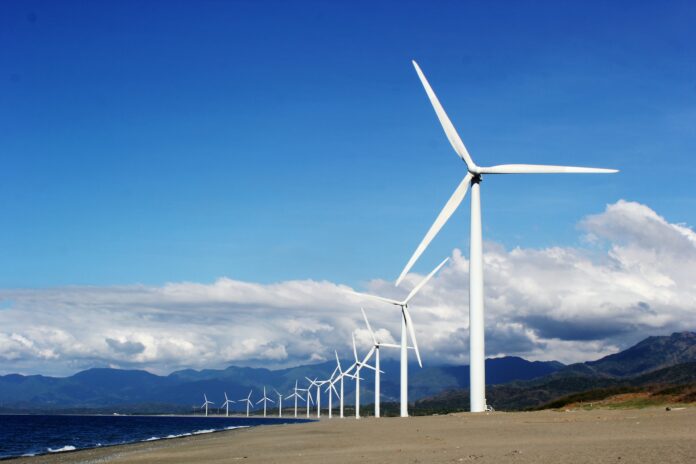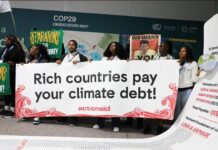By Omboki Monayo
Nairobi, Kenya: As the African Energy Week commences, the World Economic Forum (WEF) has rolled out a landmark report, placing Sub-Saharan Africa at the forefront of the renewable energy revolution. Surpassing global expectations, this region, with its unwavering commitment and notable investments, has emerged as the global torchbearer in the renewable energy realm.
Standing at 46th globally, Kenya has emerged as the crowning jewel of the African continent in the renewable energy sector. With an outstanding ETI score of 57.8 points, the country has shown the way for the rest of the region. Not to be outdone, Morocco (55.6), Namibia (55.1), Mauritius (55), and Cote D’Ivoire (53.1) trail closely, further accentuating Africa’s determined push to make significant progress in the renewable energy sector.
Delving deeper into the numbers, the Sub-Saharan African region has witnessed an 11% growth spike in renewable energy over the past decade, positioning it as a global dynamo in sustainability. The region’s commendable strides in eco-friendly practices, fostering green jobs, and unwavering political commitment to renewable energy underscore its rising global importance.
Certain African nations like Cote D’Ivoire, Kenya, Senegal, Zimbabwe, and Tanzania have even outpaced several counterparts in Europe and Latin America in renewable energy development, recording impressive growth rates over the recent nine years.
The 2023 WEF report’s analysis is a testament to Kenya’s meteoric rise and robust transition readiness. The nation’s impressive score illustrates its dedication to forging a sustainable, green future, paving the way for others to follow suit.
Moreover, Africa’s strategic alignment with renewables also signals its contribution to the global quest against climate change, mirroring the ambitious goals set forth by the Paris Agreement. The report’s clarion call for a swift transition to cleaner energy resources within the next few years underscores the urgency to attain 2030 climate milestones.
The African Climate Summit, recently convened in the bustling city of Nairobi, celebrated the continent’s vast reservoirs of wind, solar, and geothermal energies. However, the Nairobi Declaration unraveled a glaring disparity: a meager 2% of the last decade’s global renewable energy investments, amounting to $60 billion, found its way to Africa.
At the summit, Kenya’s President Ruto struck an optimistic note, stating, “Armed with 60% of the world’s renewable energy assets, Africa is primed to lead the global charge against climate change.”
Yet, the journey ahead isn’t devoid of challenges. The report sends a clear warning that the critical window for transitioning to cleaner energy is narrowing swiftly. Financial limitations amplify these challenges, often leading to stagnating investments or even shelving of potential green projects.
In the wake of these revelations, prominent African thought leaders have weighed in with their perspectives. Mohamed Adow, the founder and Director of Power Shift Africa, passionately notes, “Our continent’s immense energy potential is our gift. The time is ripe to harness it fully. It’s imperative that we champion a just transition away from fossil fuels, embracing a future replete with green and sustainable energy.”

Echoing his sentiments, Omar Elmawi, Executive Director of Muslims for Human Rights (MUHURI), articulates, “By championing renewables, we are bestowing our vibrant young generation with the tools to craft a brighter future, dispelling the shadows of energy poverty that shroud millions in Africa.”
Lorraine Chiponda, who serves as the coordinator of Movement Building Space, emphatically declares, “The time has come to reshape our world. A world where every African community is powered by clean, renewable energy.”
However, not all voices resonate with unanimous optimism. Bhekumuzi Dean Bhebhe, Lead Campaigner of Don’t Gas Africa, sheds light on an unsettling dichotomy. He critiques, “It’s paradoxical for our leaders to decry affluent nations for their oil and gas endeavors, while simultaneously expanding such projects in our lands. Our focus should invariably be on our people’s needs.”
In a nutshell, Sub-Saharan Africa’s green endeavors present a hopeful canvas for the future. Their commitment and determination hint at a world where the continent not only satiates its energy requirements sustainably but also serves as a beacon for the world. The dawn of the African renewable energy era is upon us, promising a transformative energy narrative for the 21st century.














